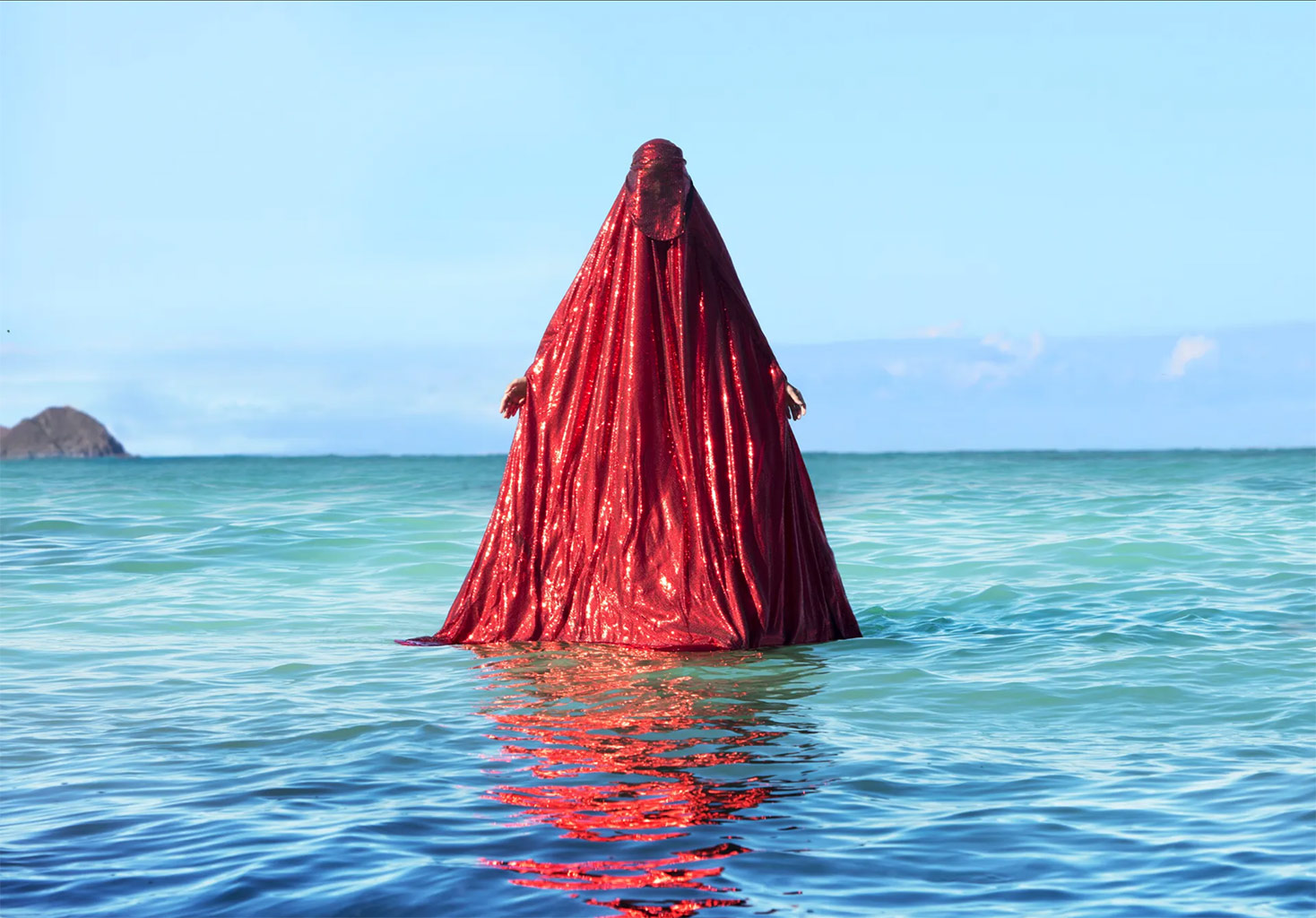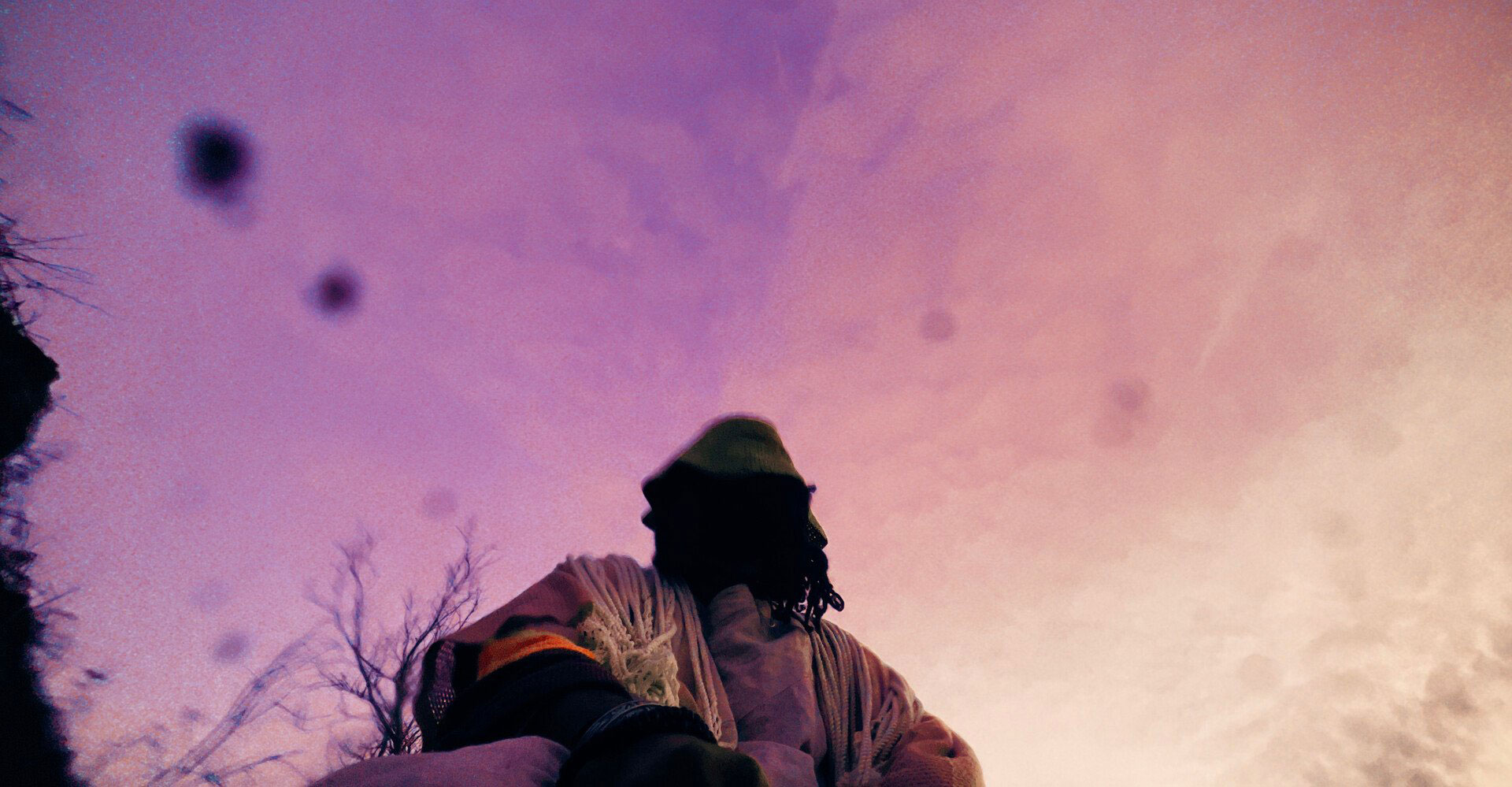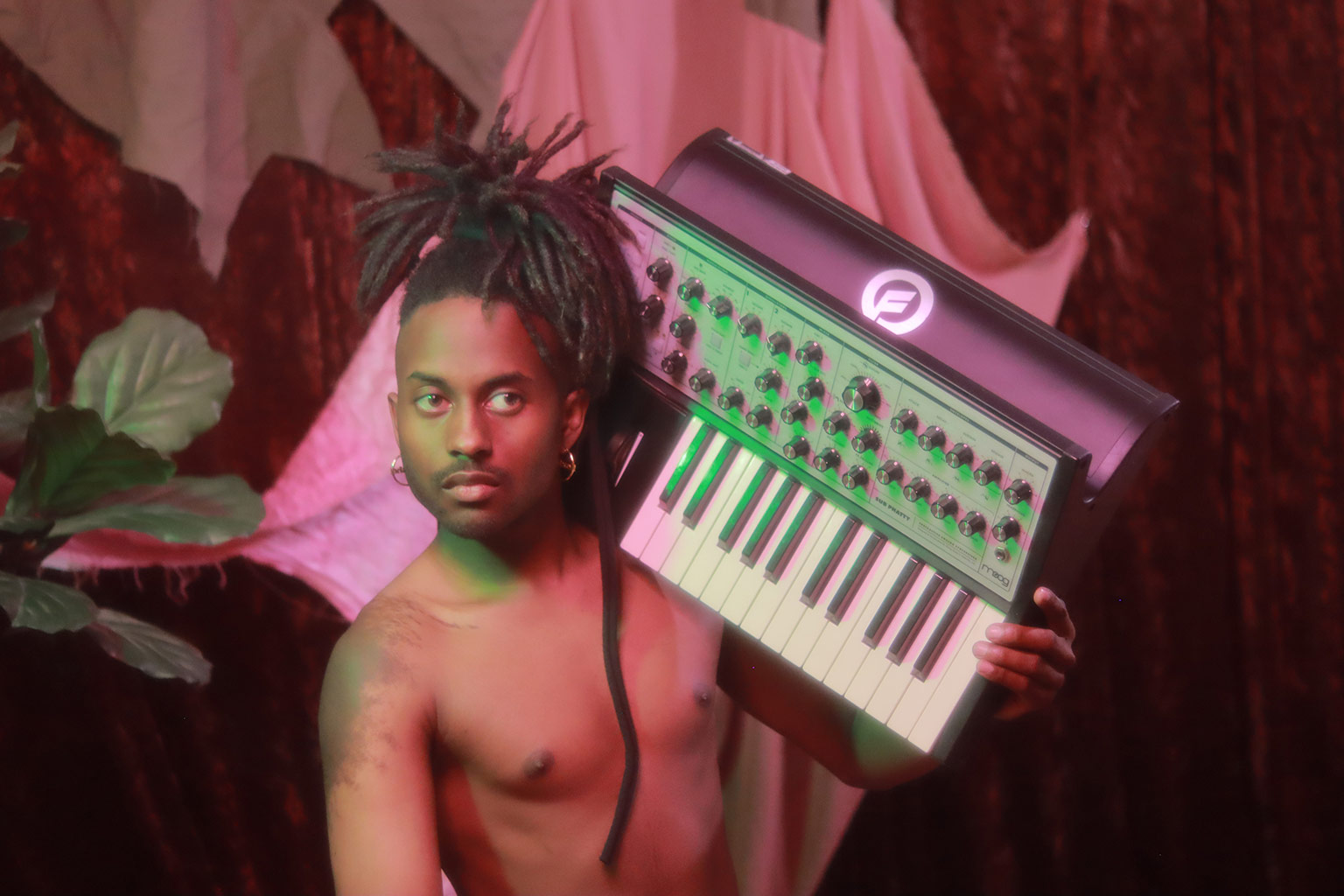
A Natural Discovery of One’s Own Style
Originally from Tulsa, Crenshaw relocated to Los Angeles in 2019 and immediately connected with the community-oriented record label Leaving Records, who would go on to release PARASAiL-18. Yet life hasn’t always felt so smooth or aligned. He first began working on the record in 2018, when he was studying jazz at a Texas college and feeling massively conflicted that the institution’s approach to jazz varied significantly from his own.
“My initial exposure to jazz before that was very much organic and vocalized and a lot of time mentorship-focused, which is basically the dynamic of jazz traditionally and how it was,” notes Crenshaw. “It was really conflicting when I knew I was passionate about this enough to put my life into it, and then I get to a space where… [due to the] the academic culture behind [the college] and how they viewed and positioned jazz in the curriculum, I felt marginal…”
This marginalization, however, had a bright side; it allowed Crenshaw to connect to the historically Black artform in a deep way that he had never experienced before, as well as find his personal connection to it. Feeling “ironically alienated going to school for jazz in a very much Euro-centric classically-focused curriculum,” Crenshaw felt the need to scratch the conceptual itch that college failed to scratch. Listening to Terrace Martin, Herbie Hancock, Kasey Benjamin, and other artists who prominently used vocoder in jazz — even if it wasn’t their primary tool — eventually worked its way into his craft.
“It felt like one of those things where I didn’t really conceptualize it a lot of the time, but… it felt like a natural falling into,” he says.
It was also a lack of vulnerability which prompted Crenshaw to embrace the vocoder. As a student on-campus from 2015 to 2019, when Texas allowed for open carry and school shootings were regularly in the news, Crenshaw felt an “ambient level of anxiety” as a Black student, especially knowing that if he were to open carry, he might be viewed differently as a white student who did the same on-campus.
“There’s that, you know, double consciousness of it as well, but basically just having to internalize that anxiety, I needed an avenue to talk about it,” he explains. “At that point, I wanted to use words, and I wanted something that was still, felt close to home, and I think that’s why I started doing the vocoder, as opposed to me singing or me doing instrumental music.”
“In the end, this album is about escape. It’s about processing, digesting things that are just difficult to process, like gun violence, death, sexual submission, and things like that,” Crenshawn continues. “In a way, [PARASAiL-18] feels like it really embodies the kind of essence of the time period that I was going through… and I think I really wanted all the aspects of the project to represent that too, from the album artwork being very opaque and blurred to the actual aesthetics of the mix.”
While The Growth Eternal’s embrace of vocoder might have been something he fell into initially, it feels more intentional at this point. He cites indie pop band Unknown Mortal Orchestra as one source of inspiration, because where their vocals are present but unclear, eschewing mainstream pop sensibilities. Throughout Crenshaw’s recent releases — PARASAiL-18, the 2021 EP Kensho !, and the 2020 full-length, Bass Tone Paintings — words and phrases flow in and out of consciousness and understanding, to create a sonic environment that is meant to be felt.
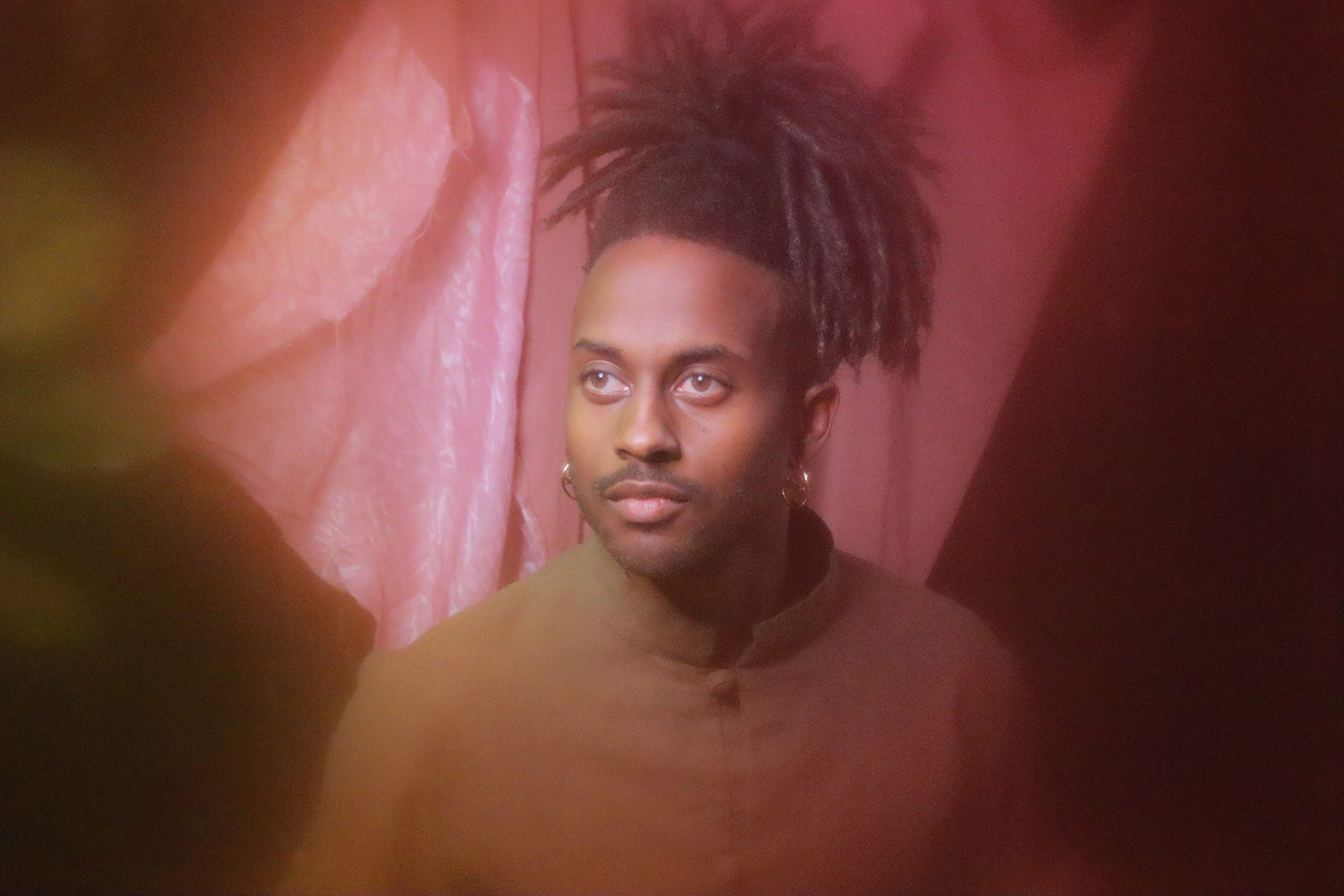
Deeply Embedded Reminders to Self
To illustrate the album’s sonic feel, one need only look into the track “Roden,” which is named after visual artist James Turrell’s massive Arizona land art project, the Roden Crater. The track features a quote from Turrell, who is one of Crenshaw’s favorites and a master creator of immersive light illusions.
“When you look at the stuff that [Turrell has] done, it really feels like something that I strive to do with music, which is to do something that kind of dissolves that illusion of a barrier between the observer and the observed…” Crenshaw describes. “I think that’s, really, at its core, what I want to embody: that bringing you into the space, bringing you into this present resonance, and capturing something that is a consistent mood in that way.”
It is common for Crenshaw to weave subtle intentions and reminders into his work. PARASAiL-18‘s stylized album title, for instance, is laden with hidden meaning.
“Basically, the 18 was from that period in my life, when I needed the parasail; I needed that momentary release from the way of the world,” he says. “If gravity is the way of the world, that’s where the analogy comes in for the parasail.”
Whereas the 18 is referential to the year 2018, at the height of Crenshaw’s self-discoveries in college, the lowercase i is a more recent addition. It was added during the incubation period between the record’s completion and its release.
“If you think of escaping, and the primary desire to escape, we want that momentary relief because of all these overwhelming emotions. A lot of times, these emotions come from a fundamental self-consciousness, or fear of a lot of things,” Crenshaw explains. “The reason why I made the lowercase i is because: when I think of the exact opposite of the escape that I was craving, the exact opposite would be that very deeply embodied presence. It’s kind of a spiritualist presence.”
When Crenshaw later shares that meditation is one of his key life practices, these reflections seem all the more resonant. He continues, “When you really tackle [these emotions] on a fundamental level, you can’t have… what we think of as the traditional sense of self. I can’t be I or ME — and have all those anxieties that come with it — and at the same time, be really deeply, fundamentally connected to everything around me, you know?”
“That’s why I wanted that i as… a reminder to me as everyone else, because I forget a lot,” Crenshaw concludes.
A similar reminder and intention can also be found in the project name, The Growth Eternal. It serves as a way for Crenshaw to shake himself out of occasional ruts he may get into as a freelance worker, encourages him to constantly seek changes, and pushes him to places he feel like he hasn’t gone.
“I really wanted to embody that [constant change] in the name… so it’s more personal for me; so I just don’t forget. It’s like when you write super clearly on the whiteboard all those things in your room; it’s that constant reminder that keeps you on course. It’s like the [bumper lanes] of a bowling alley.”
PARASAiL-18 is a record that Crenshaw made as much as it made him, because it helped him understand himself on a deeper and more fundamental level. With the record now released, Crenshaw feels that his day-to-day life feels more balanced between freelance work and focusing on The Growth Eternal.
“Now, I escape by making kombucha and shit,” he notes playfully.
One has to wonder if there might be a deeper meaning to that as well.
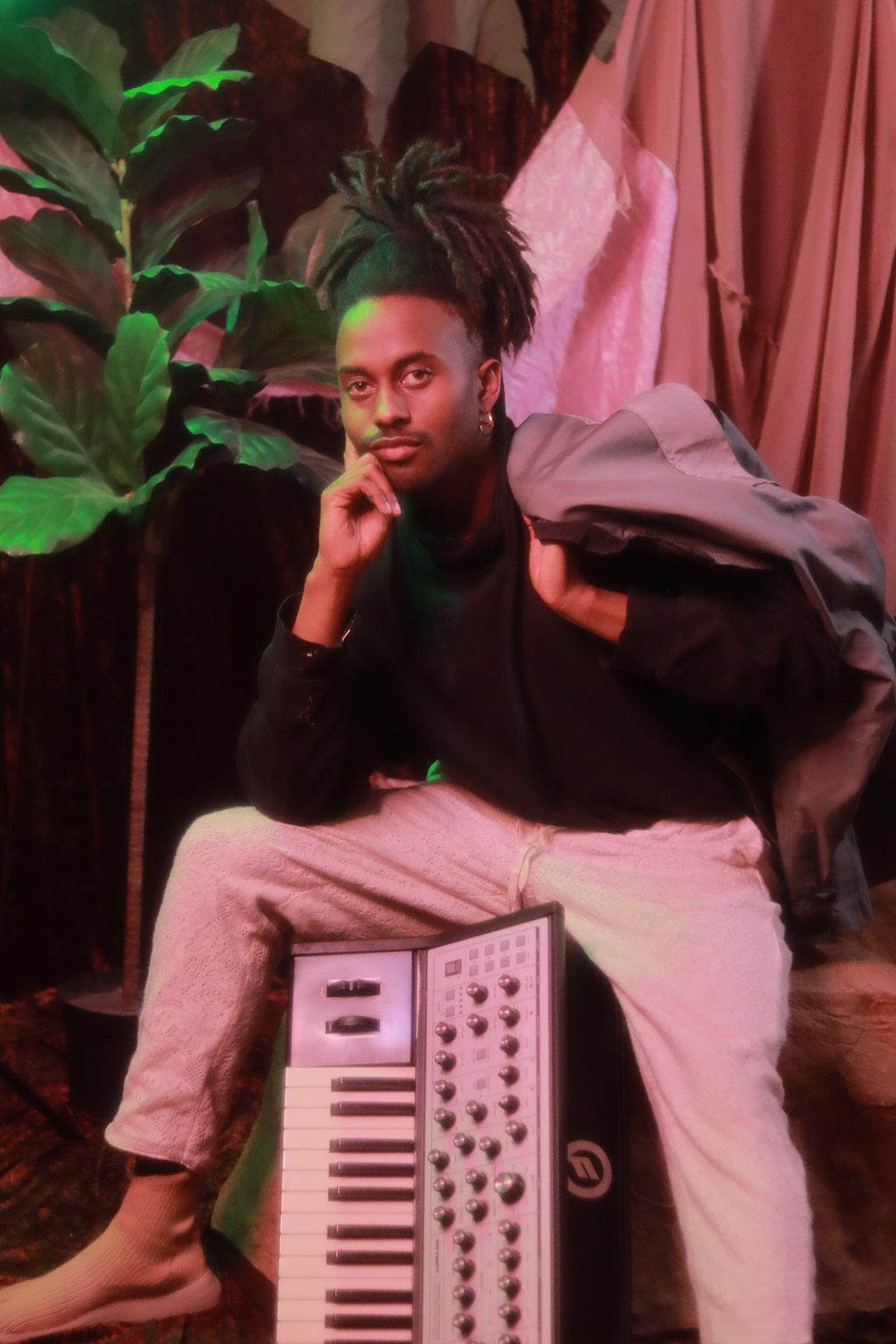
thegrowtheternal.bandcamp.com
leavingrecords.com/
Ω



